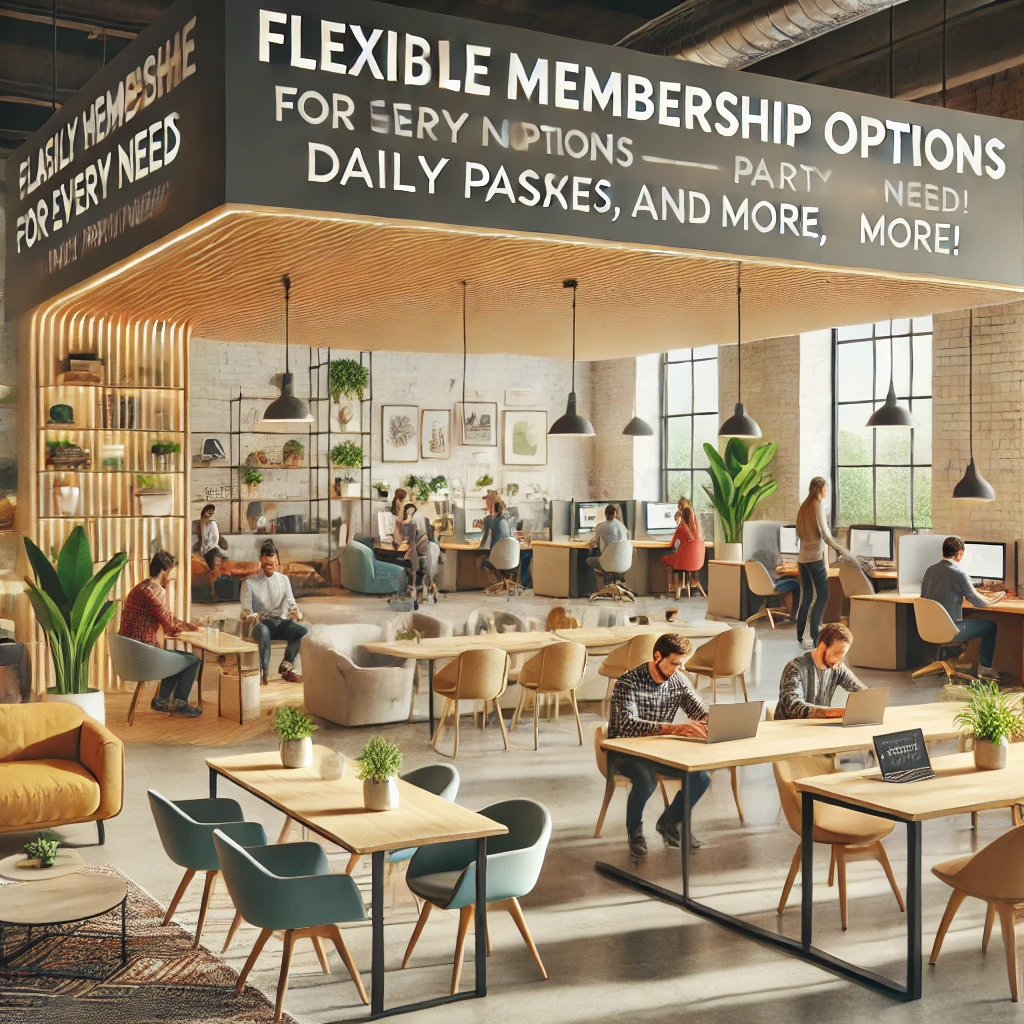
In today’s crowded coworking landscape, small coworking spaces face a significant challenge: how to attract and retain members when up against larger, more established brands. These bigger players often have more resources, extensive marketing reach, and the ability to offer a wide range of amenities. So, how can smaller spaces carve out a place for themselves? The answer lies in leveraging their unique strengths to create a distinct and compelling experience for their members. Here’s how small coworking spaces can thrive by focusing on what they do best.
One of the biggest advantages small coworking spaces have over their larger counterparts is the ability to create a tight-knit, niche community. Instead of trying to appeal to everyone, focus on attracting a specific group of professionals whether it is tech startups, digital nomads, creatives, or wellness practitioners. By honing in on a niche, you can foster a stronger sense of belonging among members, making your space more appealing and encouraging long-term loyalty. This niche focus not only helps you stand out but also creates a unique identity that attracts members looking for a more tailored coworking experience.

Flexibility is key in today’s work environment, and small coworking spaces are uniquely positioned to offer this. Unlike large coworking brands with rigid membership structures, smaller spaces can provide a variety of flexible options such as daily passes, part-time memberships, or weekend-only plans. This flexibility allows you to cater to a broader range of professionals, freelancers, remote workers, and small business owners, who might not need a traditional full-time desk but still want a supportive, professional environment. By offering flexible options, you’re not just filling desks; you’re meeting the diverse needs of your community.
In a smaller coworking space, every member counts. This creates an opportunity to offer a more personalized experience that larger spaces simply can’t match. Take the time to get to know your members personally, understand their needs, and make them feel valued. Simple gestures like remembering birthdays, celebrating achievements, or even hosting personalized networking events can make a huge difference. When members feel seen and appreciated, they are more likely to stay loyal to your space and spread the word to others. Personalization is a powerful tool for retention and growth.
Quality can often be more appealing than quantity. While larger coworking spaces might focus on maximizing the number of desks, small spaces have the advantage of investing in quality to create a more comfortable and inspiring environment. High-quality furniture, good lighting, and aesthetically pleasing decor contribute to a productive atmosphere that can attract professionals looking for a place where they can thrive. This focus on quality helps differentiate your space from the competition and builds a reputation for excellence.
Local partnerships can add significant value to your coworking community. Collaborate with nearby businesses such as cafes, gyms, and wellness centers to offer exclusive discounts and perks to your members. These partnerships not only enhance the overall member experience but also strengthen your ties to the local community, positioning your coworking space as a hub for collaboration and support. By embedding yourself in the local scene, you can create a more vibrant, interconnected community that appeals to members.
Events and workshops are a great way to bring members together and add value to their experience. Regularly hosting targeted events that align with your community’s interests, such as networking events, skill-sharing workshops, or wellness activities can create a dynamic environment where members can learn, grow, and connect. A well-curated event calendar can help you stand out as a lively, engaging space, making it more likely for members to remain invested in the community and attract new ones looking for more than just a place to work.
Even as a small coworking space, maintaining a strong online presence is crucial. Use social media to share community highlights, member stories, and upcoming events. This helps you build an online community and attract potential members who resonate with your space’s vibe and values. An active online presence also positions your space as modern and relevant, which is essential for attracting younger, tech-savvy professionals.
Customer service is another area where small coworking spaces can outshine larger competitors. Being attentive to member needs, quickly addressing any concerns, and actively seeking feedback to improve the experience can set your space apart. When members feel supported and valued, they’re more likely to stay and recommend your space to others. Exceptional customer service can turn your members into ambassadors, helping you grow through positive word-of-mouth.
Word-of-mouth is one of the most powerful marketing tools for small coworking spaces. Encourage your members to bring in friends or colleagues by offering referral bonuses or discounts. You can also showcase testimonials and success stories on your website and social media to highlight the positive impact your space has on its members. This authentic storytelling builds trust and can attract new members who are looking for a supportive, community-driven environment.
Maximizing the use of your space creatively can enhance its functionality without the need for expansion. Think about how different areas can serve multiple purposes a meeting room could also be a quiet zone for focused work or an event space. Being innovative with how you use your space allows you to offer more value to your members and keeps the environment dynamic and adaptable.
Small coworking spaces may face the challenge of competing with larger brands, but they also have unique strengths that can help them stand out. By building a niche community, offering flexible memberships, personalizing the member experience, and leveraging local partnerships, small coworking spaces can create a compelling, differentiated environment that attracts and retains members. Focus on these strategies to make your space a place where people want to be, and you’ll not only survive in the competitive coworking market—you’ll thrive.
